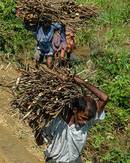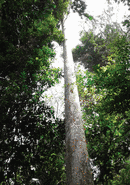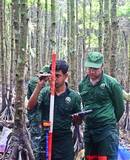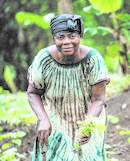Noticias
Equipped with knowledge. Discussing the protection of one of the world's largest carbon hotspots
22/12/2018
22/12/2018

Peatlands are lands with a naturally accumulated plant layer on their surface, stored by the high water level. Peatland ecosystems store great amounts of carbon and have therefore become a centre of attention for climate change mitigation. Although not all peat locations are known and mapped, peatlands are estimated to contain 30 per cent of the world’s soil carbon even though they only cover 3 per cent of the Earth’s land area. In addition to storing organic matter, peatlands provide a wide range of ecosystem services.
Over 180 countries have peatlands, including in diverse climatic areas like highlands, drylands, coastal areas, river...

Through many years of experience and country examples, we have learned that data on forest ecosystems is crucial for forest-related decision-making at the local and national level. National Forest Monitoring Systems (NFMS) are important for countries to be able to monitor and report on national goals and international targets, such as carbon and biomass in forests.
These systems are increasingly used to collect data to identify and address national priorities, including migration and the use of natural resources surrounding the camps of refugees and internally displaced persons (IDPs). One of the recent examples of NFMS’ multipurpose character is the contribution to the Safe Access...

With almost half of the working population employed in the agriculture industry, Côte d’Ivoire’s economy is greatly affected by climate change and the multiple weather variations it brings. In addition, the country’s ever-expanding agriculture is one of the main drivers of deforestation that can further aggravate the effects of climate change. In order to reverse this trend and find and implement win-win solutions to both forestry and agriculture, the Government of Côte d’Ivoire is taking important data-driven steps to address the problems posed by climate change. In these efforts, the country recognises the effectiveness of reducing emissions from deforestation and...

Reducing emissions from deforestation and forest degradation (REDD+) may lead to a significant increase in the amount of carbon sequestered by forests, contributing greatly to national and international efforts to combat climate change. To better plan and report on REDD+ actions, participating countries are required to monitor and report on their carbon inventories. Therefore, the selection of methods for estimating biomass stocks and carbon storage is critical to the effectiveness of REDD+.
Use of allometric equations
Tree biomass, volume and carbon stocks can be estimated using various methods, however, the use of allometric models is considered the most common one. Although some...

Often in the past, policies and programs to protect and expand forests have had an environmental or production focus, while the interest, needs and knowledge of people depending on them have not always been taken into account. Since then, the world has learned many lessons and has come a long way in understanding the importance of local communities’ knowledge and engagement in planning and implementing efforts to reduce forest loss.
REDD+ holds a unique position in this matter, as it has the potential to attract international and national attention while increasing support for strengthening communities’ rights and stewardship of forests and...

